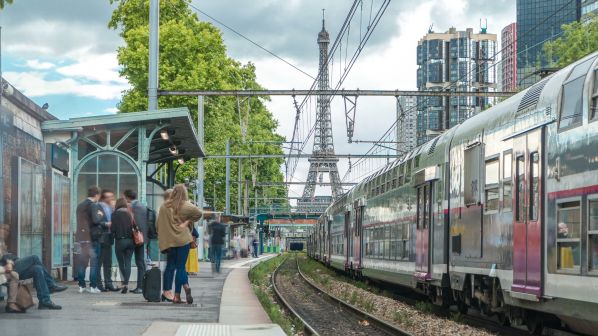FRENCH prime minister, Ms Elisabeth Borne, announced a further €100bn investment in rail infrastructure by 2040 during a speech on February 24.
She stressed the need to improve “everyday transport” and the move towards zero carbon emissions from transport.
Investment will be concentrated on new high-speed lines and RER systems in cities outside of Paris as well as delivering cross-city links, more frequent passenger services and new interchange hubs. The government will announce more details of its plans in June, following consultation with the regions.
Borne emphasised that the €100bn will be financed not only by central government but also French National Railways (SNCF), the European Union and French regional authorities in charge of passenger services.
An extra €1bn a year will be allocated to renewal of the rail network, and €500m a year will be allocated to network modernisation. The result should be more frequent trains, shorter journey times and improved punctuality.
The prime minister also announced that cities developing RER systems will be able to draw on the expertise of SNCF as well as Société du Grand Paris (SGP), which is overseeing construction of new orbital metro around Paris. SGP’s role will be widened through new legislation.
Investment will also continue in saving minor lines from closure and in developing rail freight.
The government’s decision to provide additional funding follows a report from the Infrastructure Policy Advice Council (COI). While Borne acknowledged the role of the car in day-to-day transport, especially in rural areas, she accepted the COI’s proposal that plans to expand the road network should be re-examined. Greater priority will also be given to walking and cycling.
The prime minister’s announcement was welcomed by French Rail Association (Afra), which represents passenger and freight operators other than SNCF.
“This is a frank and ambitious shift in favour of rail,” says Afra president, Mr Alexandre Gallo. “France is finally recognising that the train will be one of the pillars of our country's ecological and energy transition.”
However, AFRA points out that only 25% of the €100bn in new funding has been committed at present, leaving a further €75bn to be found.
“The success of this strategy will depend on establishing a programme that is as detailed as possible, over the long term, and that includes balanced financing between the state, SNCF, the European Union and local authorities,” says Afra general manager, Mr Franck Tuffereau.
“Many details still need to be provided, such as confirmation of investment for freight or projects such as the Lyon - Turin route,” he says.
In addition to a detailed strategy set out in new legislation, Afra is also calling for the government to revise its performance contract with infrastructure manager SNCF Network.
“This is another opportunity to significantly improve the performance and the way infrastructure manager SNCF Network operates, which is the weak link in the rail sector,” Gallo says.

